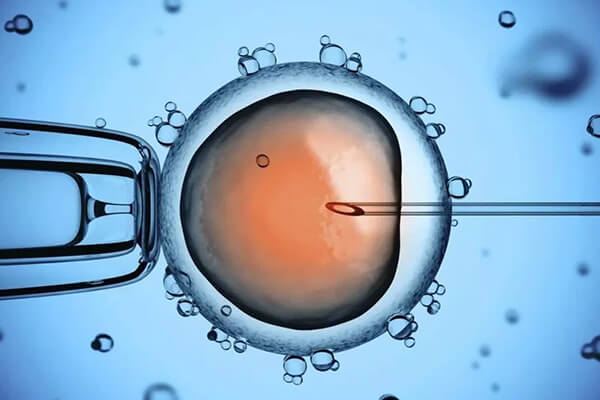Jannee is the best fertility Center in Chandigarh with best infertility specialists. Intracytoplasmic sperm injection (ICSI) is an infertility treatment. It involves injecting live sperm into a person's eggs in a laboratory.
Infertility is a significant and common problem. It is the inability of a couple to become pregnant after one year of regular intercourse without contraception. Approximately 9% of couples throughout the world are infertile with 56% of couples needing treatment. A study suggests that sperm dysfunction is the most common cause of male infertility. For around half of the couples who are having problem conceiving, the cause of infertility is sperm related. ICSI Treatment is the most common and successful male infertility treatment.
Intracytoplasmic Sperm Injection or ICSI Treatment is a procedure where a single sperm is picked up with a fine glass needle and injected directly into the cytoplasm of the egg to assist fertilisation.
ICSI is used to improve fertilization phase of in vitro fertilization (IVF) by injecting a single sperm into the matured egg for fertilization. The fertilized egg is then placed in the woman’s uterus for normal growth.
This procedure is commonly used to overcome male infertility issues.

An intracytoplasmic sperm injection (ICSI) is ideal for augmenting the fertility of a male partner. It is recommended in multiple scenarios.
Low Sperm Count
By injecting sperm into an egg, ICSI increases the chances of fertilisation for men whose semen is sparsely populated with sperm.
Abnormally shaped sperm
Healthy sperm are buttressed by a circular head on one end, and a long, pointed tail on the other. For misshapen sperm, motility could prove to be a problem. Also, even if an abnormally shaped sperm does reach an egg, penetrating through the outer wall of the egg may prove difficult.
Obstruction in the vasa deferentia
The vasa deferentia are the fine pipes that carry sperm from the testicles to the urethra. Sometimes, these tubes may be closed, either naturally, or as a result of a vasectomy. In this case, sperm have no way of exiting the testicles. By drawing sperm directly from the testicles and injecting a single sperm cell into an egg, ICSI could optimise the chances of fertilisation, and in turn, of conception.
For the Female:
For the Male:
On the day of the procedure:
If the sperm count is zero:
In cases of vasectomy, the sperm can be retrieved from the testicles (testicular sperm extraction or TESA) or epididymis (percutaneous epididymal sperm aspiration or PESA).
However, if the sperm count is zero for any other reason, consider Donor Insemination or In-vitro fertilization.”
Once the process is complete and fertilization is successful, the embryo is transferred to woman’s uterus. The fertility specialist at ICSI treatment centers in Chandigarh use transvaginal ultrasound and blood tests for determination of implantation and pregnancy.
Pregnancy rate is higher for IVF procedures with ICSI than for IVF without ICSI. The success rates vary according to
© 2022 Jannee Fertility Centre. All Rights Reserved.
Designed by AMS Informatics